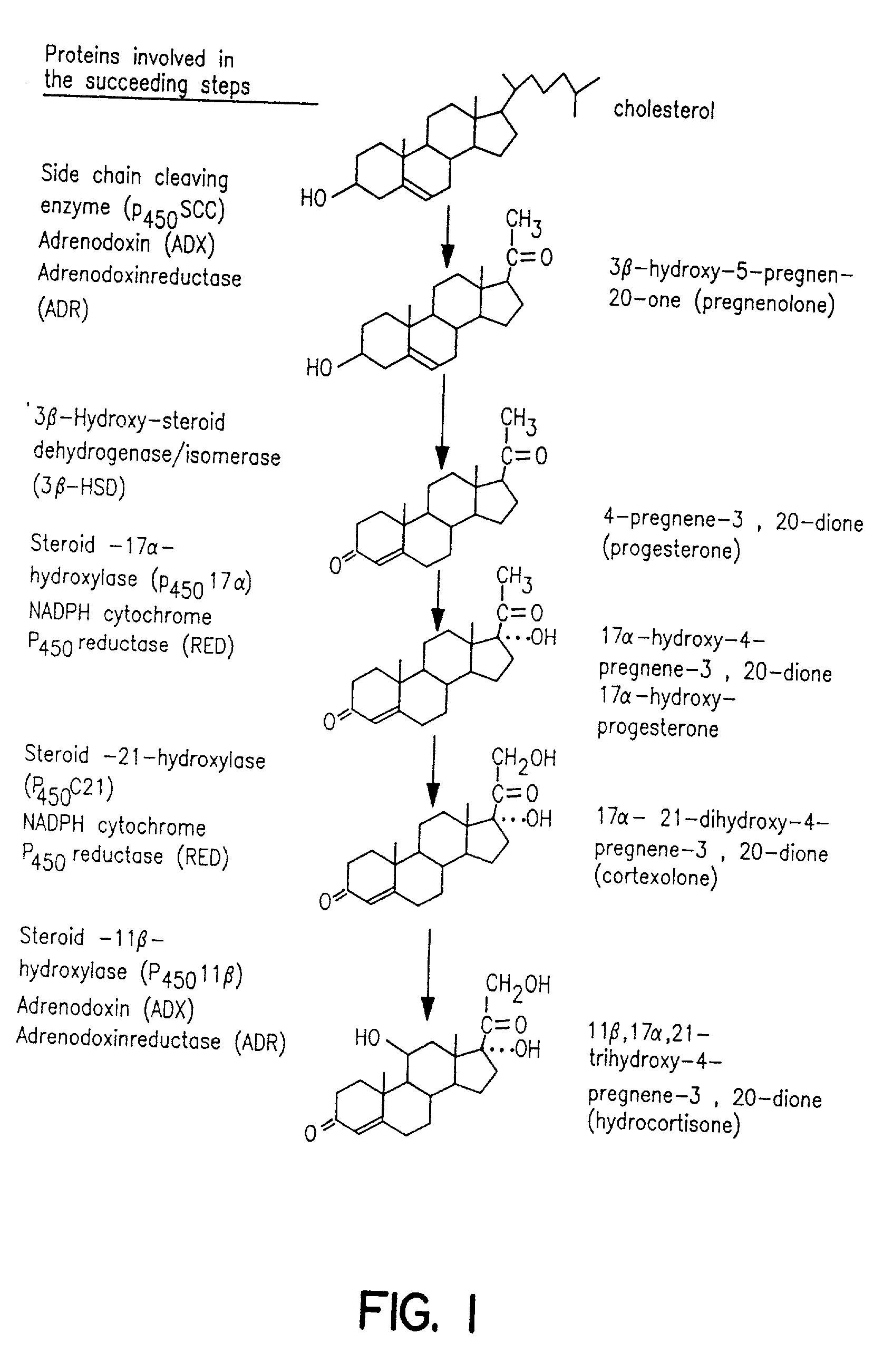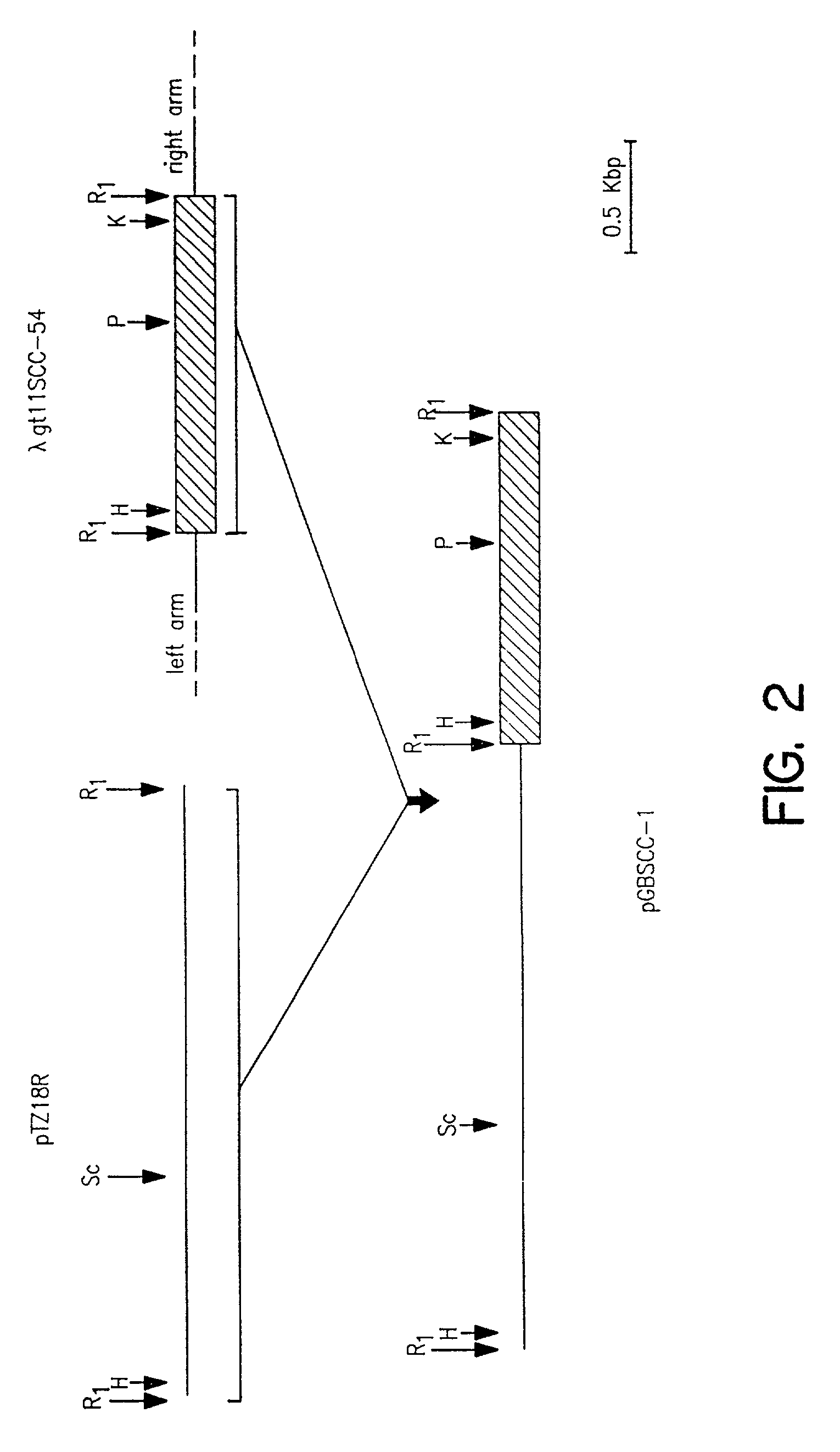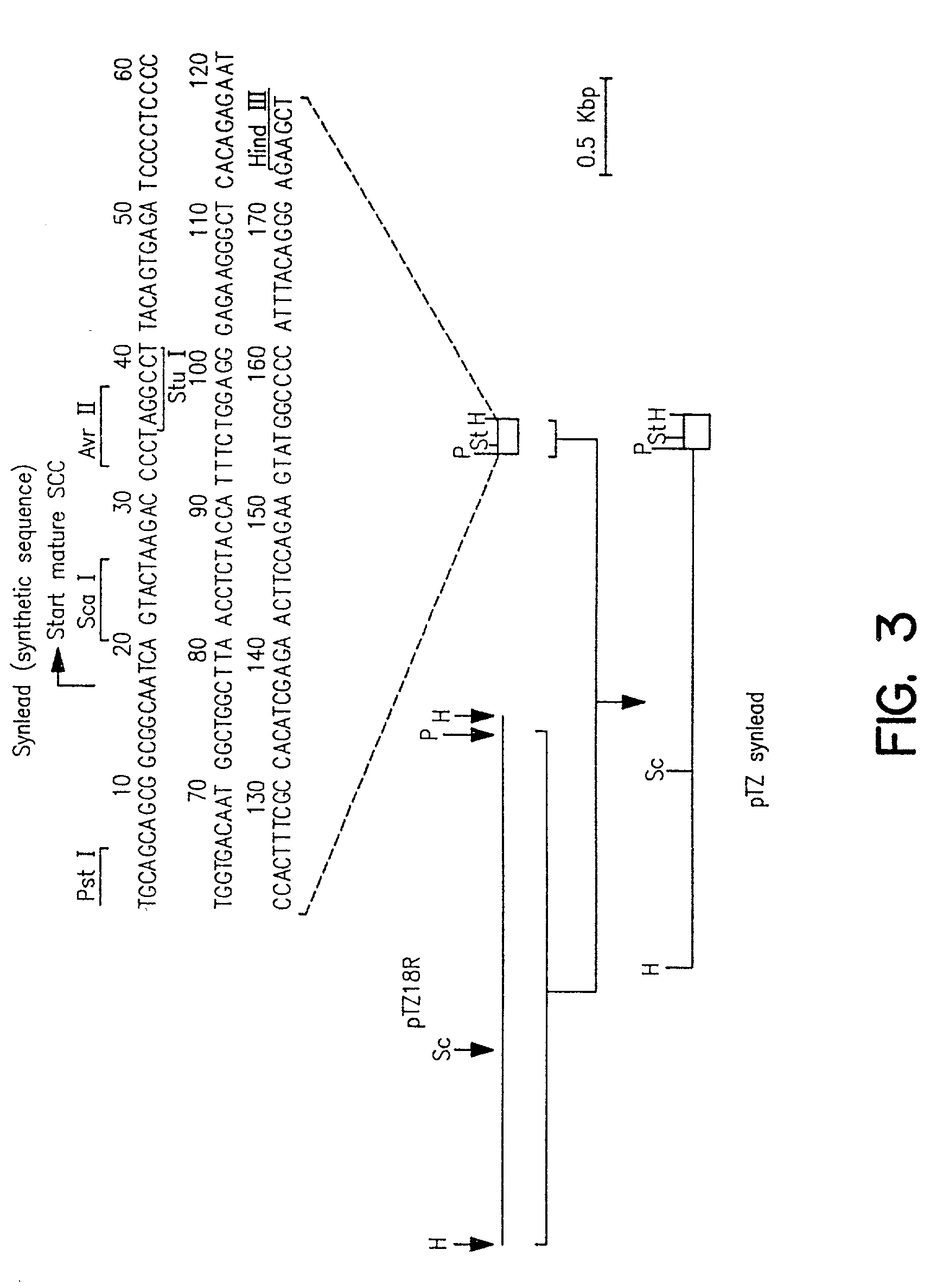Process for oxidation of steroids and genetically engineered cells used therein
a technology of genetic engineered cells and steroid oxidation, which is applied in the field of oxidation process of steroid genetic engineered cell used in the field of steroid oxidation, can solve the problems of difficult protein isolation and high price of necessary cofactors, and is difficult to make such a biochemical process economically attractive, and achieves the yield of pregnenolone in a cell-fr
- Summary
- Abstract
- Description
- Claims
- Application Information
AI Technical Summary
Benefits of technology
Problems solved by technology
Method used
Image
Examples
example 2
[0141] Construction, transformation and expression of P.sub.450SCC in the bacterial host Bacillus subtilis
[0142] To derive expression of cytochrome P.sub.450SCC in a Bacillus host, P.sub.450SCCcDNA sequences were transferred to an E.coli / Bacillus shuttle vector pBHA-1.
[0143] FIG. 5 shows the nucleotide sequence of the shuttle plasmid pBHA-1. The plasmid consists of positions 11-105 and 121-215: bacteriophage FD terminator (double) positions 221-307: a part of plasmid pBR322 (viz. positions 2069-2153); positions 313-768: bacteriophage F1, origin of replication (viz. positions 5482-5943); positions 772-2571: part of plasmid pBR322, viz. the origin of replication and the .beta.-lactamase gene; positions 2572-2685: transposon TN903, complete genome; positions 2719-2772: tryptophan terminator (double) positions 2773-3729: transposon Tn9, the chloramphenicolacetyl transferase gene. The nucleotides at position 3005 (A), 3038 (C), 3302 (A) and 3409 (A) differed from the wild type cat coding...
example 3
[0147] Expression of P.sub.450SCC in the bacterial host Bacillus licheniformis
[0148] Expression of bovine P.sub.450SCC in B.licheniformis was performed by transformation plasmid pGBSCC-5 into the appropriate host strain B.licheniformis T5 (CBS 470.83). A cellular protein fraction prepared as described in Example 2, from an overnight culture at 37.degree. C. in Trypton Soy Broth (TSB) medium (Oxoid) containing 10 .mu.g / ml of neomycin, was analyzed by SDS / PAGE and Western-blotting. As shown in FIG. 9 (lane f), a 53 kDa sized protein band was visualized after incubation of the nitrocellulose filter with anti-bodies specific for bovine P.sub.450SCC. One transformant, SCC-201, was further analyzed for in vivo activity of P.sub.450SCC (see Example 11).
example 4
[0149] Expression of P.sub.450SCC in the bacterial host Escherichia coli
[0150] (a) Construction of the expression cassette
[0151] To derive a suitable expression vector in the host E.coli for bovine P.sub.450SCC, pTZ18R was mutated by site-directed mutagenesis as described by Zoller et al. (Methods in Enzymolozy, Val. 100, pp. 468-500, 1983) ; Zoller et al. (Methods in Enzymolozy, Vol. 154, 329-350, 1987) and Kramer et al. (Methods in Enzymology, Vol. 154, pp. 350-367, 1987). Plasmids and strains for in vitro mutagenesis experiments were obtained from Pharmacia Inc.
[0152] A synthetic derived oligomer with the sequence:
2 5'-CAG GAA ACA CAT ATG ACC ATG ATT-3' .vertline. .vertline. NdeI
[0153] was used to create an NdeI restriction site at the ATG initiation codon of the lac Z gene in pTZ18R. The resulting plasmid pTZ18RN was digested with NdeI and KpnI and the NdeI / KpnI DNA fragment of pGBSCC-4 containing the full-length SCCcDNA, was inserted by molecular cloning as indicated in FIG. 10...
PUM
| Property | Measurement | Unit |
|---|---|---|
| volume | aaaaa | aaaaa |
| volume | aaaaa | aaaaa |
| temperature | aaaaa | aaaaa |
Abstract
Description
Claims
Application Information
 Login to View More
Login to View More - R&D
- Intellectual Property
- Life Sciences
- Materials
- Tech Scout
- Unparalleled Data Quality
- Higher Quality Content
- 60% Fewer Hallucinations
Browse by: Latest US Patents, China's latest patents, Technical Efficacy Thesaurus, Application Domain, Technology Topic, Popular Technical Reports.
© 2025 PatSnap. All rights reserved.Legal|Privacy policy|Modern Slavery Act Transparency Statement|Sitemap|About US| Contact US: help@patsnap.com



